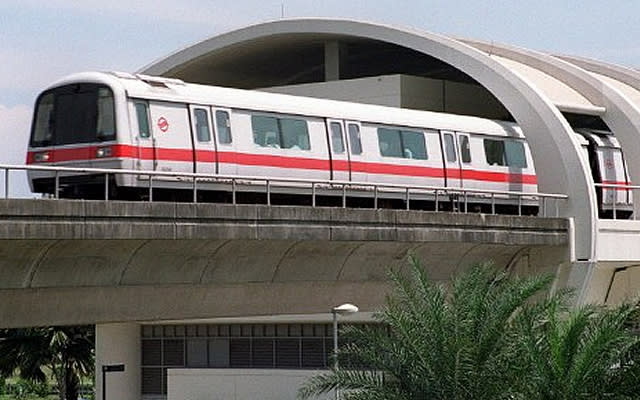Khaw on defective trains saga: ‘More info is better than less info’

Khaw Boon Wan Photo: Xinhua/Then Chih Wey
Transport Minister Khaw Boon Wan admitted that the authorities could have been more forthcoming on the issue of the 26 defective SMRT trains.
“Sometimes in public comms, more info is better than less info,” Khaw told Parliament on Tuesday (16 August).
Khaw, who was appointed to his current role last October, alluded to his previous stint as Health Minister, when there was much “miscommunication” and “misinformation” during the 2003 SARS crisis.
“As my colleagues who have worked with me for over 40 years know, I always prescribe over provide rather than under provide. That is always a better strategy than to keep the information to your chest,” said Khaw.
The 63-year-old was responding to a question from Choa Chu Kang GRC MP Yee Chia Hsing, on whether the Land Transport Authority should have been more transparent on the issue.
Last month, Hong Kong’s FactWire reported that dozens of SMRT trains were being sent back to Chinese maufacturer CSR Sifang due to cracks and structural defects. CSR Sifang had partnered Japan’s Kawasaki Heavy Industries for the tender of the trains.
LTA later clarified that a total of 26 trains were found to have hairline cracks, and that they would be replaced by 2019. The wider cracks were found in the trains’ bolster, which supports the car body, after about 27 months of service.
A hot-button issue

Yahoo Singapore file photo
Addressing eight parliamentary questions on the saga, Khaw also elaborated on why LTA had not initially informed the public about the defective trains.
Last month, the minister said at the SMRT’s Bishan Depot that declaring the return of the trains would have caused “undue panic”.
In Parliament on Tuesday, he noted that the trains did not pose any safety risk to commuters, and that the manufacturer took “immediate and full responsibility for the defects.
“(Kawasaki) committed to fully replace the bolsters with a new set made in Japan, weld them to the new car bodies and reassemble the trains in China. All these remedial actions will be fully paid for by the manufacturer,” said Khaw.
In addition, the manufacturer accepted LTA’s replacement work schedule, which is planned in such a way to ensure that train services and capacity levels are not affected by this incident.
Khaw concluded, “Had any of these factors not been satisfactorily dealt with, LTA would have publicised the defects.”


